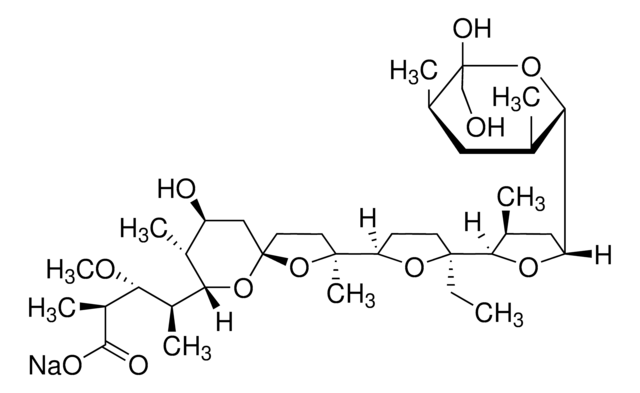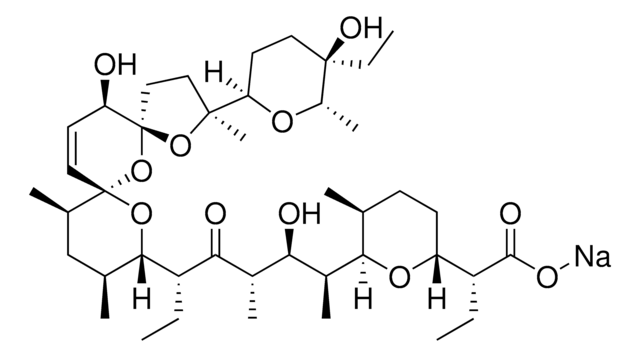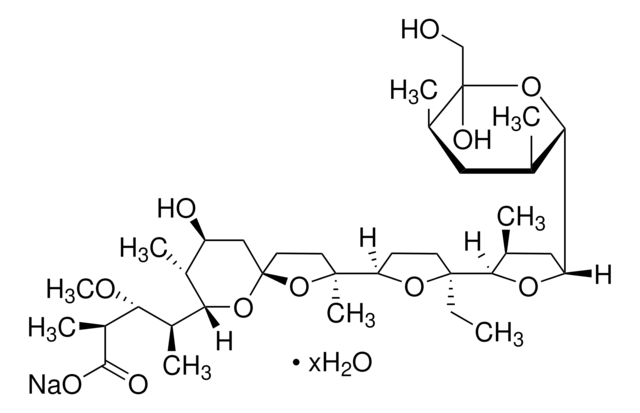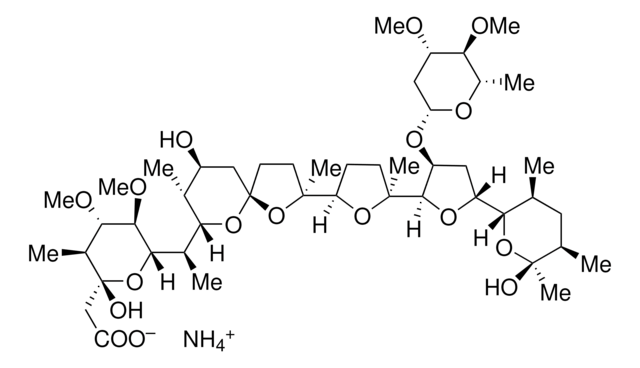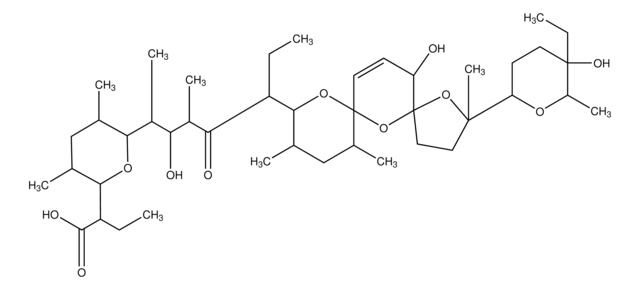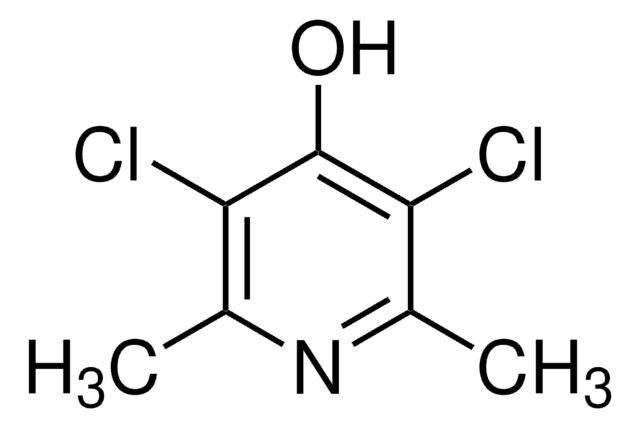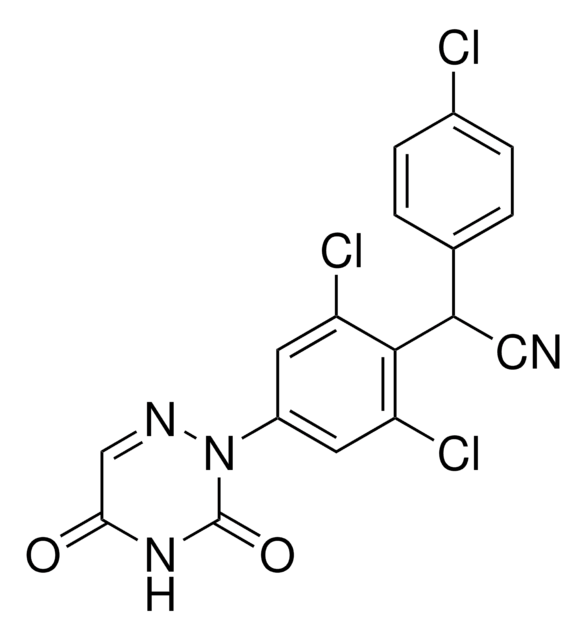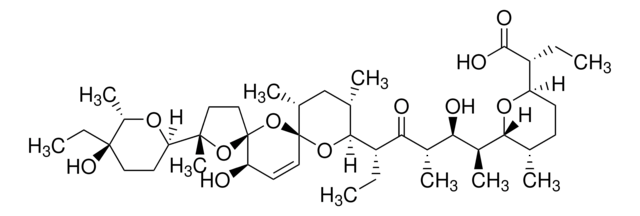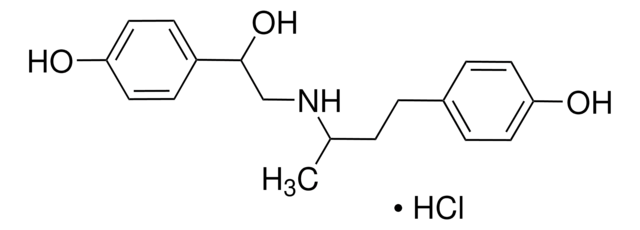46468
Monensin sodium salt monohydrate
VETRANAL®, analytical standard
About This Item
Produits recommandés
Qualité
analytical standard
Niveau de qualité
Gamme de produits
VETRANAL®
Durée de conservation
limited shelf life, expiry date on the label
Technique(s)
HPLC: suitable
gas chromatography (GC): suitable
Application(s)
cleaning products
clinical
cosmetics
food and beverages
forensics and toxicology
personal care
pharmaceutical (small molecule)
Format
neat
Mode d’action
cell membrane | interferes
Température de stockage
2-8°C
Chaîne SMILES
O.[Na+].CC[C@]1(CC[C@@H](O1)[C@]2(C)CC[C@]3(C[C@H](O)[C@@H](C)[C@H](O3)[C@@H](C)[C@@H](OC)[C@H](C)C([O-])=O)O2)[C@@H]4O[C@@H](C[C@@H]4C)[C@H]5OC(O)(CO)[C@H](C)C[C@@H]5C
InChI
1S/C36H62O11.Na/c1-10-34(31-20(3)16-26(43-31)28-19(2)15-21(4)36(41,18-37)46-28)12-11-27(44-34)33(8)13-14-35(47-33)17-25(38)22(5)30(45-35)23(6)29(42-9)24(7)32(39)40;/h19-31,37-38,41H,10-18H2,1-9H3,(H,39,40);/q;+1/p-1/t19-,20-,21+,22+,23-,24-,25-,26+,27+,28-,29+,30-,31+,33-,34-,35+,36-;/m0./s1
Clé InChI
XOIQMTLWECTKJL-FBZUZRIGSA-M
Vous recherchez des produits similaires ? Visite Guide de comparaison des produits
Description générale
Application
Informations légales
Mention d'avertissement
Danger
Mentions de danger
Conseils de prudence
Classification des risques
Acute Tox. 2 Oral - Aquatic Chronic 2 - Eye Irrit. 2 - STOT RE 2
Organes cibles
Heart,muscle
Code de la classe de stockage
6.1A - Combustible acute toxic Cat. 1 and 2 / very toxic hazardous materials
Classe de danger pour l'eau (WGK)
WGK 3
Point d'éclair (°F)
Not applicable
Point d'éclair (°C)
Not applicable
Équipement de protection individuelle
Eyeshields, Faceshields, Gloves, type P2 (EN 143) respirator cartridges
Faites votre choix parmi les versions les plus récentes :
Certificats d'analyse (COA)
Vous ne trouvez pas la bonne version ?
Si vous avez besoin d'une version particulière, vous pouvez rechercher un certificat spécifique par le numéro de lot.
Déjà en possession de ce produit ?
Retrouvez la documentation relative aux produits que vous avez récemment achetés dans la Bibliothèque de documents.
Les clients ont également consulté
Notre équipe de scientifiques dispose d'une expérience dans tous les secteurs de la recherche, notamment en sciences de la vie, science des matériaux, synthèse chimique, chromatographie, analyse et dans de nombreux autres domaines..
Contacter notre Service technique